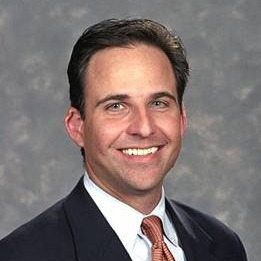
At an early age, Joe Cubba decided he wanted to hone technology to change the world. At 13, Cubba knew he wanted to fly planes and went on to later join the Civil Air Patrol. At first, he flew small planes and eventually used his knowledge of the skies to work in satellite operations for the U.S. Air Force in Colorado. That’s where he first came into contact with IBM and eventually began supporting the U.S. Intelligence Community.
“IBM built satellite ground stations in Boulder, Colo. at 6300 Diagonal Highway,” Cubba told WashingtonExec in a recent interview. “As part of my job in the Air Force I oversaw IBM, and I was really impressed by their work ethic and technical skills.”
Cubba joined the multinational technology and consulting corporation right there at 6300 Diagonal when he transitioned from the Air Force in 1990. Today, he’s most cheerful when maneuvering newer, composite planes. The Air Force veteran and Commander in the Navy Reserve had been flying to IBM’s West Virginia location on the day of the interview. His favorite aircraft to pilot? The Austrian-built Diamond Star, known for resembling a small fighter plane with a glass cockpit.
“It has been a lifelong passion and a hobby. I love to fly my kids to places like New York for pleasure, and at times, for business,” Cubba said in the interview. He’s steadily moved himself up the ranks at IBM –- taking brief stints running Tactical & Intel Programs for Northrop Grumman and running client management for e-Convergent, an internet startup, from 1999 until 2004 — before returning to IBM.
“I’m a boomerang … I came back to IBM … and now my dual military and civilian careers have merged,” Cubba said. “As of late, I’m in charge of the Intelligence Account as an IBM’er, and I work at the Defense Intelligence Agency as a Navy reservist. I serve DIA as an employee and as a valued client in addition to serving the rest of the intelligence community. That’s my job …”
The View from Above
The federal IT industry has in recent years experienced a shift,according to Cubba — moving away from rate reduction to instead embracing and taking advantage of new technology.
“It plays right into IBM’s strengths in that the government is using innovations like Cloud to optimize their current infrastructure and using the Cloud in a hybrid way to lower their overall costs while still leveraging the investment they’ve made in the infrastructure,” he said, and suggested mobile computing would be the next bandwagon to jump on.
“In the near future, you see them focusing on things like mobile.” And while the intelligence community is still “grappling with mobile,” Cubba said the more taxing challenge for the IC revolves around adjusting to the changes that will come when millennials amp up their colonization of the workforce.
“Young people are connected and they’re social and they have to leave that all behind when they go into work; if the intelligence community doesn’t figure that out, they’re going to have a tough time recruiting and modernizing their workforce and refreshing their skills,” Cubba said. “You talk to anyone today at any agency and they’ll say that’s one of their challenges on the workforce side.”
Luckily for the IC, it’s the millennial affinity for openness, the social and the interconnectedness of technology platforms that might serve as the intelligence community’s ultimate saving grace –- if it can learn to leverage such tools for intelligence gathering.
“Hand in hand with the social, the iPhone, the advent of open, all these technology platforms, there’s a proliferation of open source information and all the information around YouTube, Facebook, everything that everybody interacts with is creating opportunities. It’s a complex landscape,” Cubba said.
“In the near future, I foresee more and more intelligence being derived from these open sources, beyond what you traditionally see as your classified, government source. The intelligence community is going to have to pivot to embrace this open source to derive intelligence. At some point, it will become the source of information in intelligence and it’ll in the future overcome the actual classified sources of information, ones that they only have access to. The open source will be so complete that you can derive all the information that you need.”
“The Way of the Future”
At IBM, technologists have analytics projects in the works that would help, Cubba said.
“The sheer amount of data out there … with the social, mobile … it’s growing and growing. What we’re trying to do is look forward. The future is leveraging learning models, adaptive self algorithms that can detect changes, minute changes, and behavior of the traffic or the data itself and then respond quickly,” he said. “It’s really a forward-looking system. We have developed learning algorithms and machine learning tools where the machine learns and can cue a human in changes in the status quo in real time. That’s the future I see.”
And just as it did when Cubba first got wind of IBM back in his Air Force days, IBM continues to woo him with its technological prowess.
“Technology can help solve just about anything, really, if you let it. It takes governance and leadership; It’s hard to make the tough decisions on how to roll it out and how to drive technology adoption.” Cubba said.
“But that’s kind of our theme throughout the company—technology that makes a difference in the world.” 


